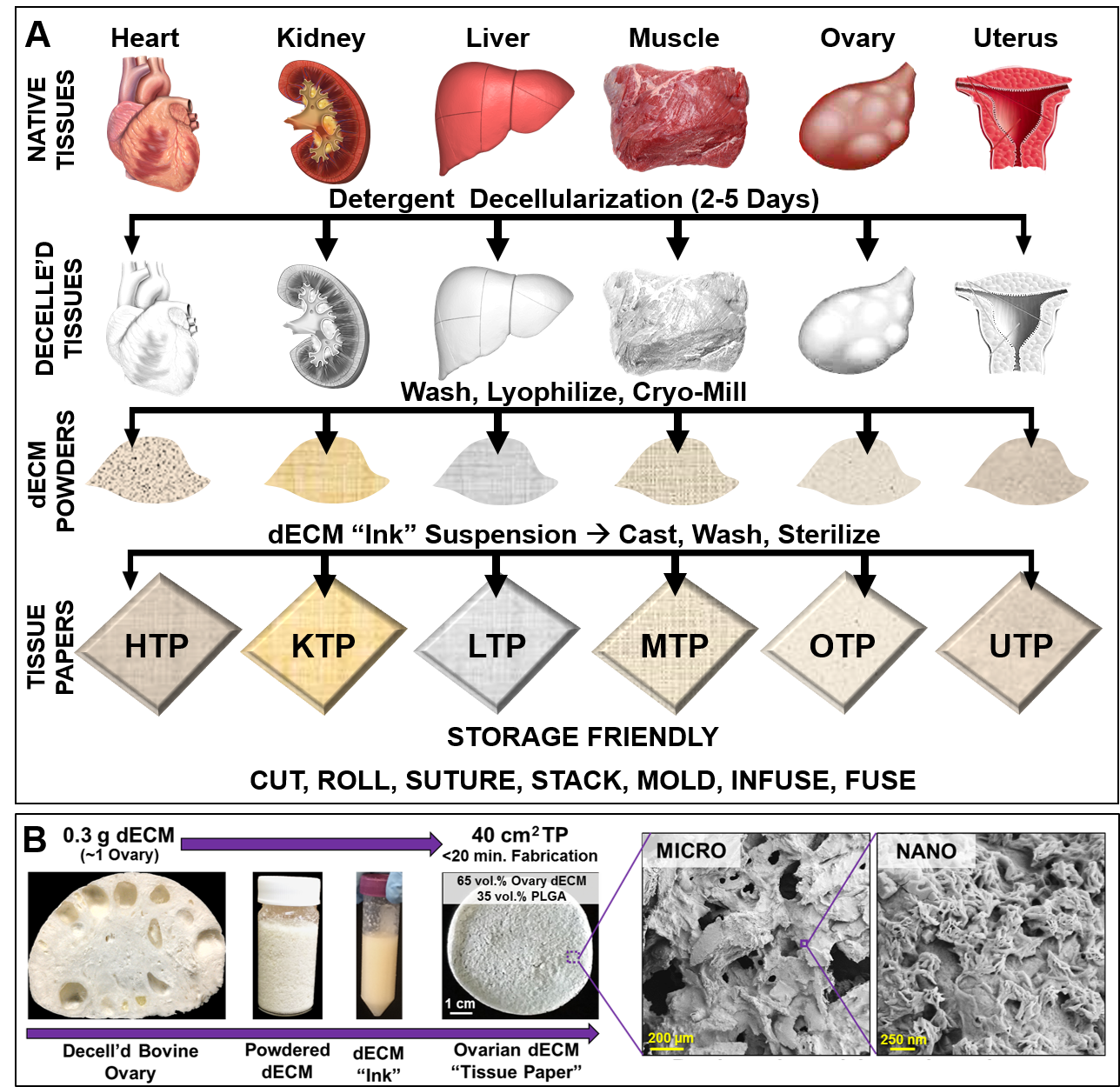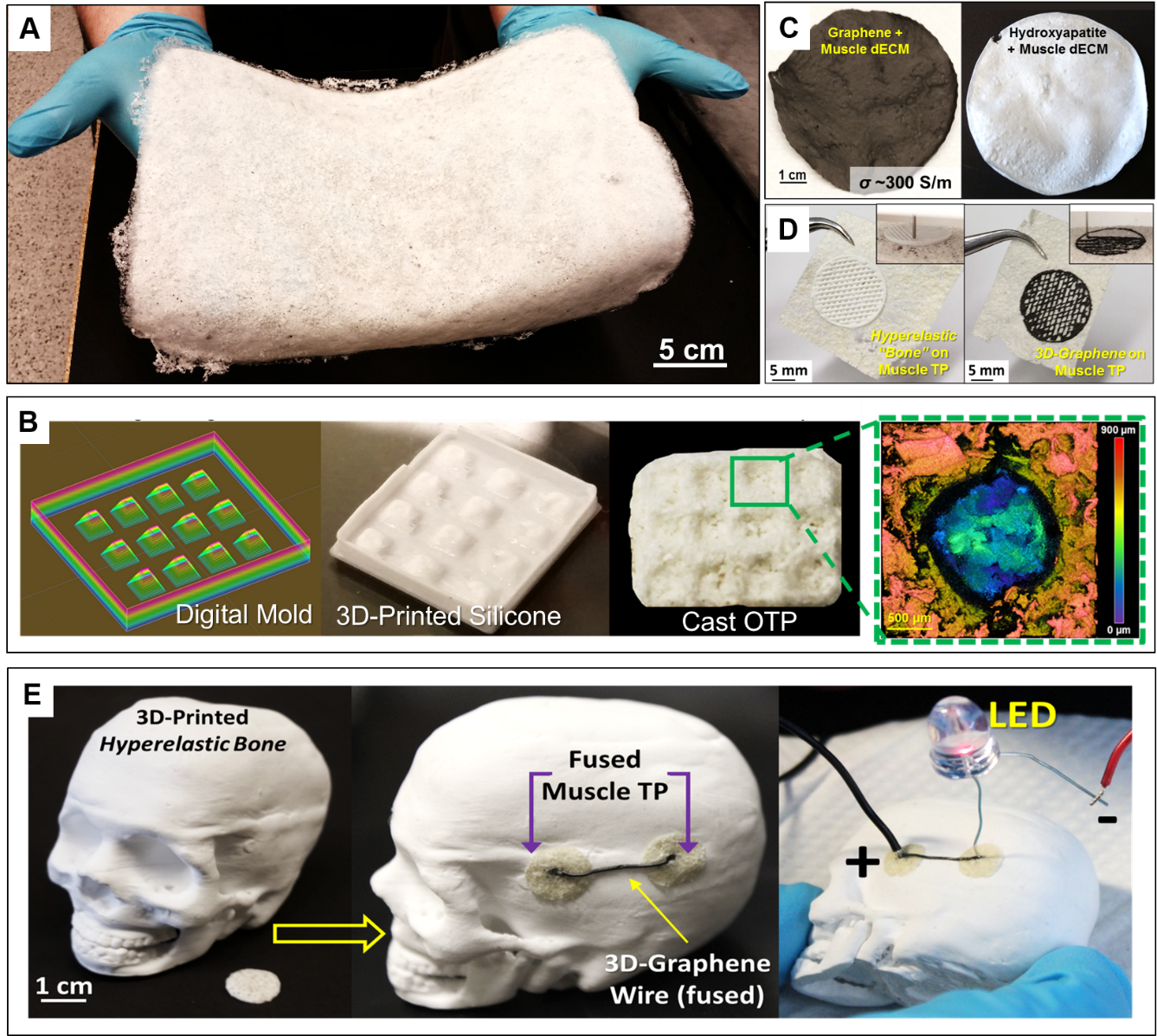Presenting Author:
Adam Jakus, Ph.D.
Principal Investigator:
Ramille Shah, Ph.D.
Department:
Surgery
Keywords:
Decellularized extracellular matrix, tissue engineering, surgical, ovary tissue engineering, biomaterials
Location:
Third Floor, Feinberg Pavilion, Northwestern Memorial Hospital
B175 - Basic Science Women's Health Research
Surgically-Friendly “Tissue Papers” from Organ-Specific Decellularized Extracellular Matrices
Using an innovative, tissue-independent approach to decellularized tissue processing and biomaterial fabrication, we describe the development of a series of ‘tissue papers’ derived from native porcine tissues/organs (heart, kidney, liver, muscle), native bovine tissue/organ (ovary and uterus), and purified bovine Achilles tendon collagen as a control from decellularized extracellular matrix particle ink suspensions cast into molds. Each tissue paper type has distinct microstructural characteristics as well as physical and mechanical properties, are capable of absorbing up to 300% of their own weight in liquid, and remain mechanically robust (E = 1-18 MPa) when hydrated; permitting them to be cut, rolled, folded, and sutured as needed. In vitro characterization with human mesenchymal stem cells reveals that all tissue paper types support cell adhesion, viability, and proliferation over the course of 4 weeks. Ovarian tissue paper supports mouse ovarian follicle adhesion, viability, and health in vitro as well as supports and maintains the viability and hormonal function non-human primate and human follicle-containing ovarian cortical strips ex vivo for 8 weeks. "Tissue papers" can be augmented with bioactive synthetic materials and integrated with recently developed 3D-printable biomaterials.


